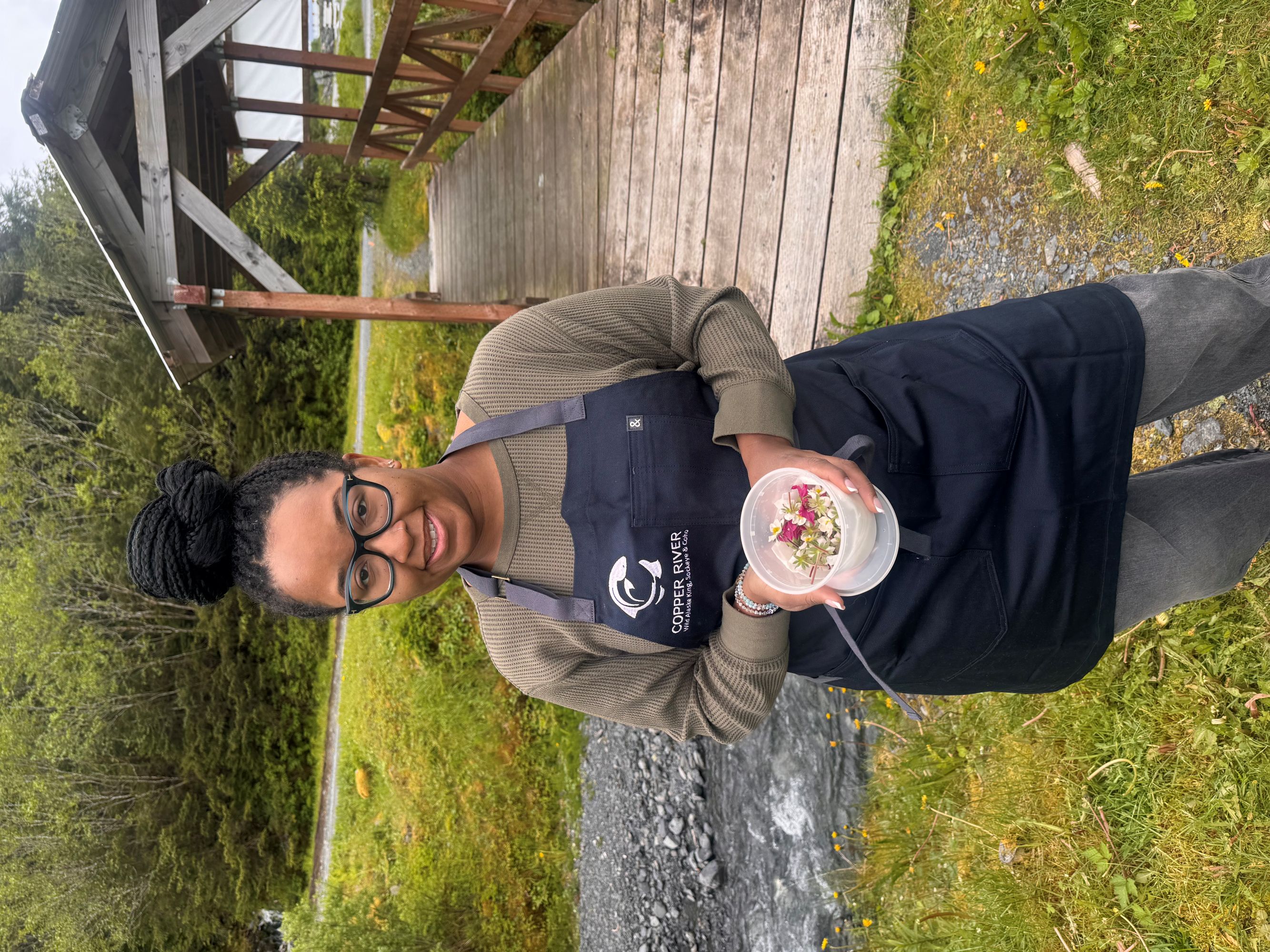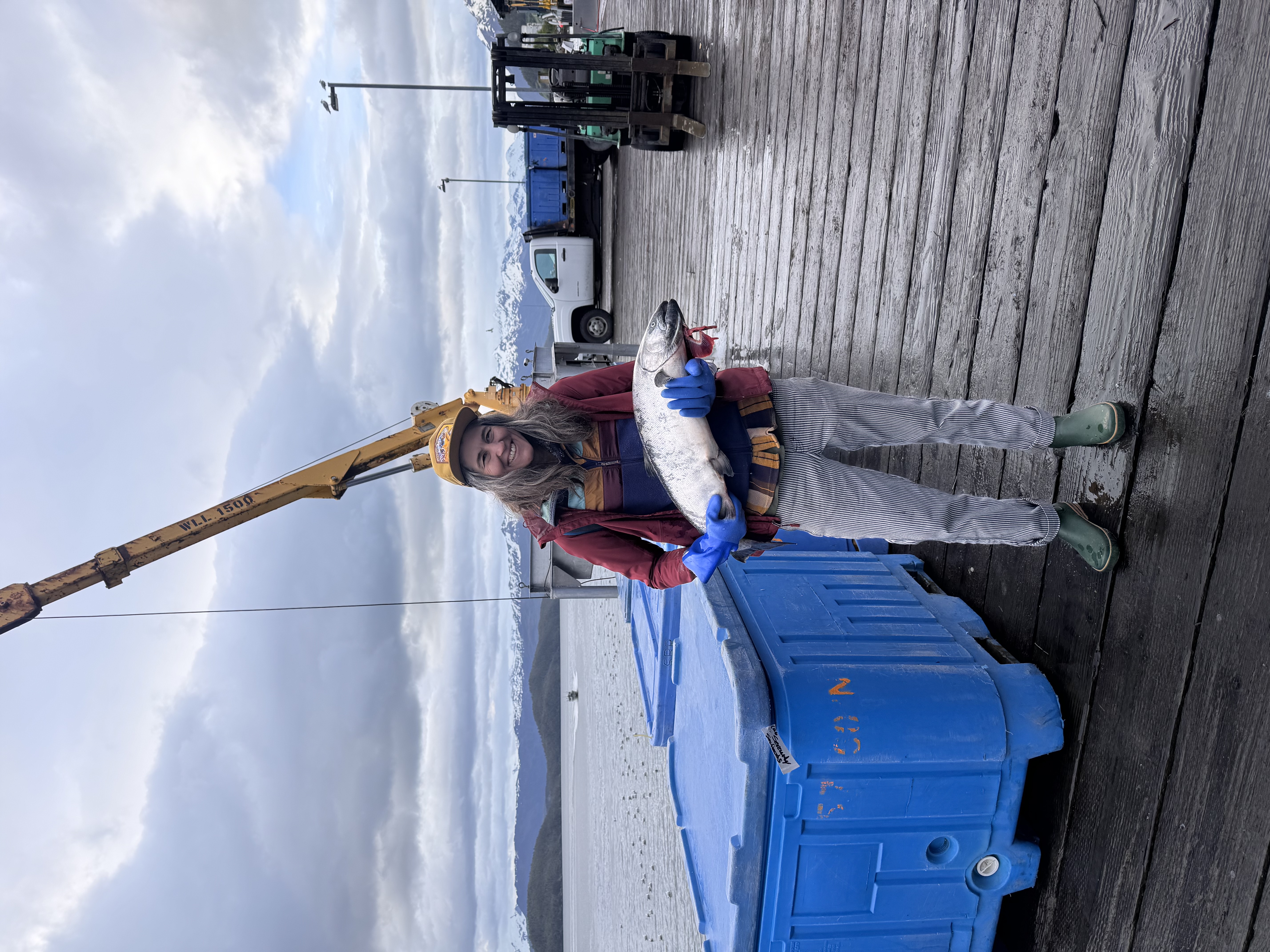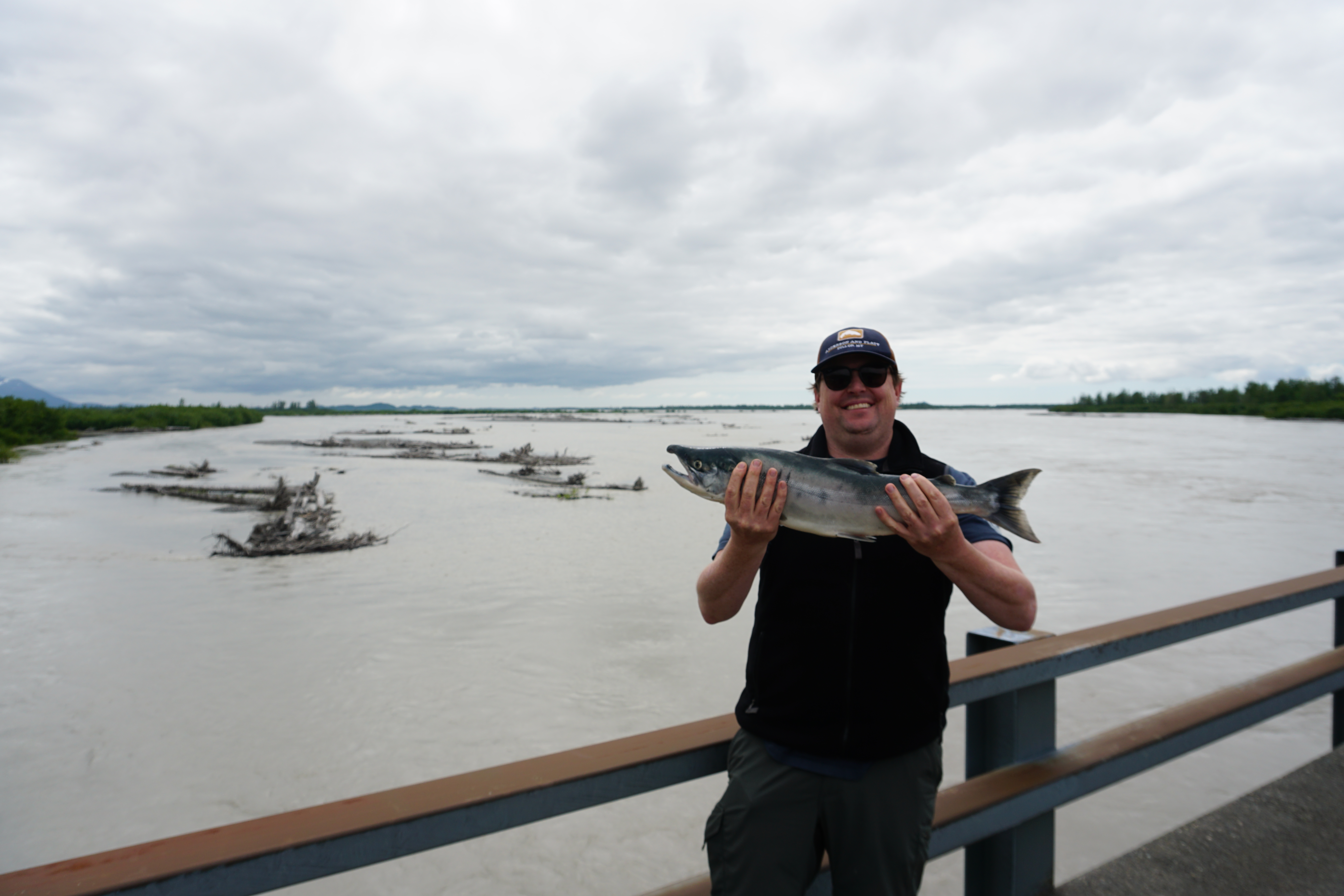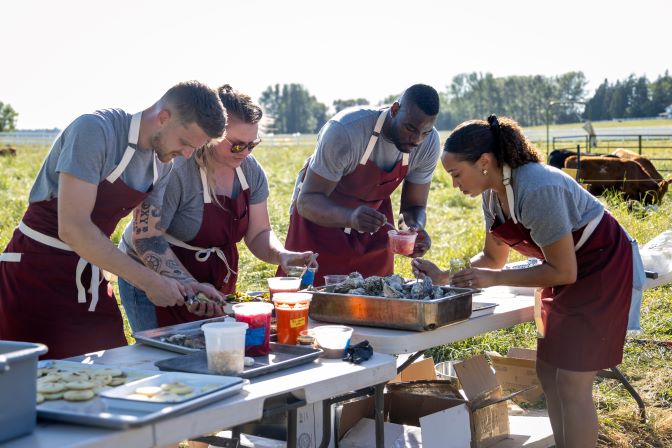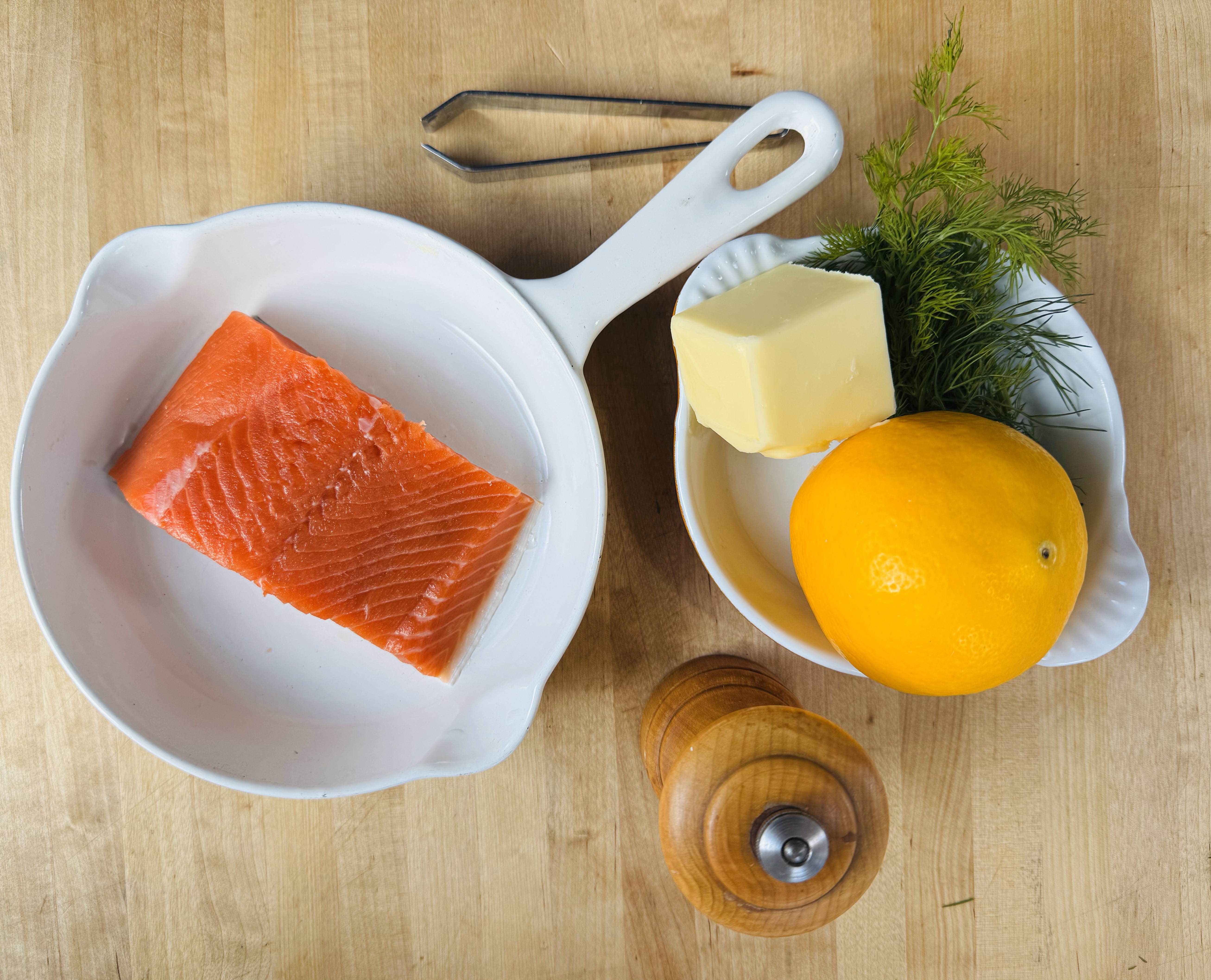By using our website, you agree to the use of cookies as described in our Cookie Policy
The Beauty of Tradition
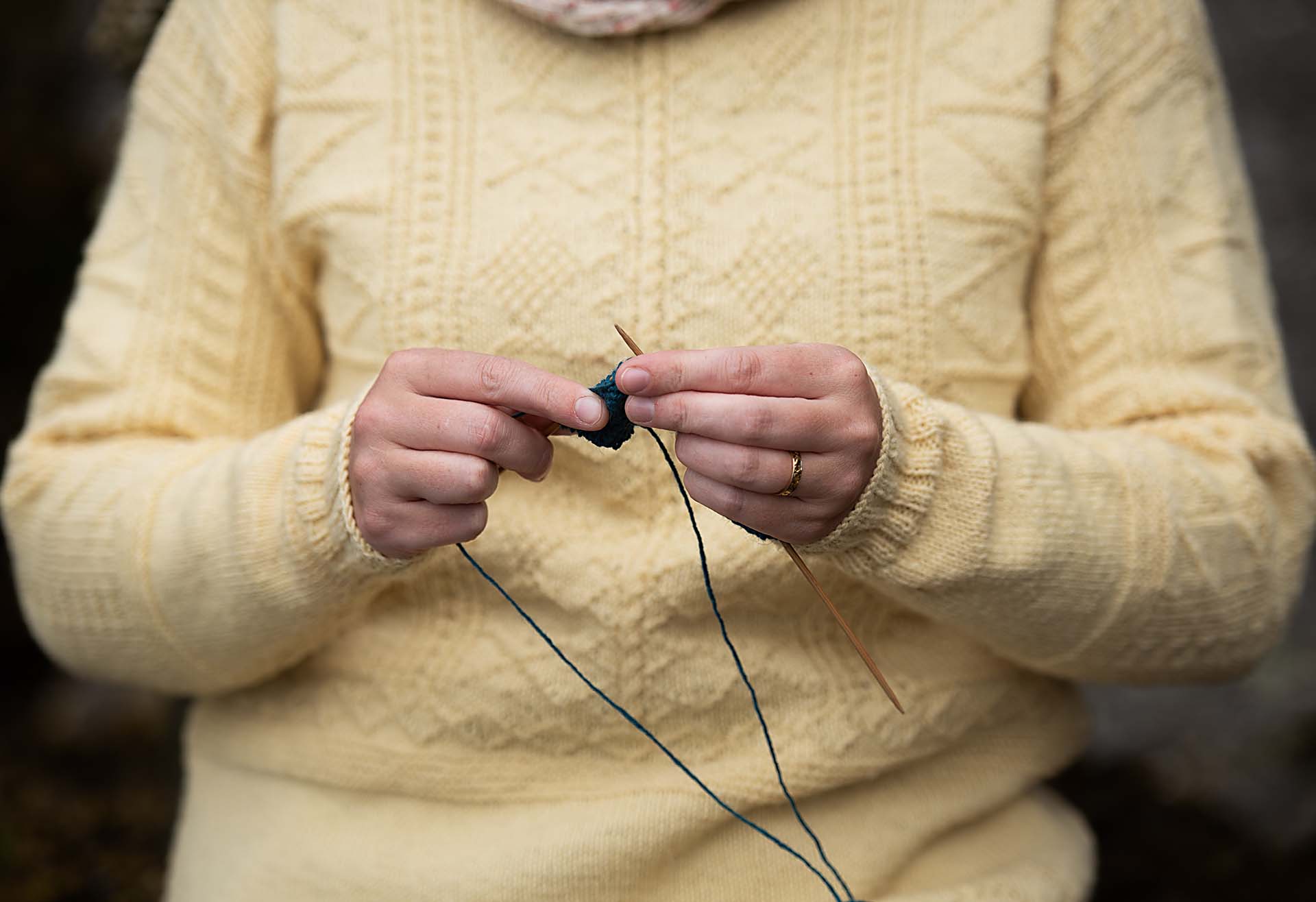
The Beauty of Tradition
The traditional craft of the British Isles
Guernsey sweater is being is being rekindled by a small
fishing community half a world away.
Written by Kinsey Justa on assignment for Copper River Salmon
Photos by Bree Mills on assignment for Copper River Salmon
For as long as fishermen have been heading out to sea, they have left loved ones behind to miss them on shore. During the 18th century in the British Isles, fishing for herring in the cold stormy waters of the North and Celtic Seas was a dangerous profession, one that many men undertook in order to support their families. As a symbol of love, and as an aid to the journey, many wives of fishermen knit a hard-wearing wool sweater for their husbands and sons to wear while fishing. This fisherman’s sweater, known as the Guernsey after the island of its origin, is made with hard twisted and tightly packed wool fibers that create a warm garment more flexible than a jacket, able to withstand wind and sea spray. The Guernsey sweater has long been a wardrobe staple of the British Isles due to its practicality and cultural significance, and now this unique style and loving tradition is being revived anew in a rather unexpected place half a world away in coastal Alaska.
Commercial fishing has changed considerably since the 18th century, namely it is safer and more efficient. Sails and oars have been replaced with internal combustion motors and jet propulsion. Once guided by stars in the heavens, fishermen now navigate onto waypoints near and far using advanced GPS systems. What has remained the same, however, are the tightly-knit communities surrounding this traditional industry. Alaska is home to some of the most productive and sustainable wild fisheries in the world, and the economy of many coastal communities are directly supported by small boat commercial fishing. Cordova is one such place, a small-town numbering about 2,000 in population that sits within Alaska’s south-central coast, where the calm waters of Prince William Sound and the glacial melt of the Copper River flow into the tumultuous vastness that is the Gulf of Alaska. Cordova is a place where tradition and innovation live in harmony. Many residents here are fishermen targeting the world-famous Copper River salmon, known for its high oil content and exceptional taste. Harvesting such highly valued species allows these families to live in land-locked Cordova year-round and make their living from the sea. This fishing community is where the Guernsey sweater is coming to life once more.
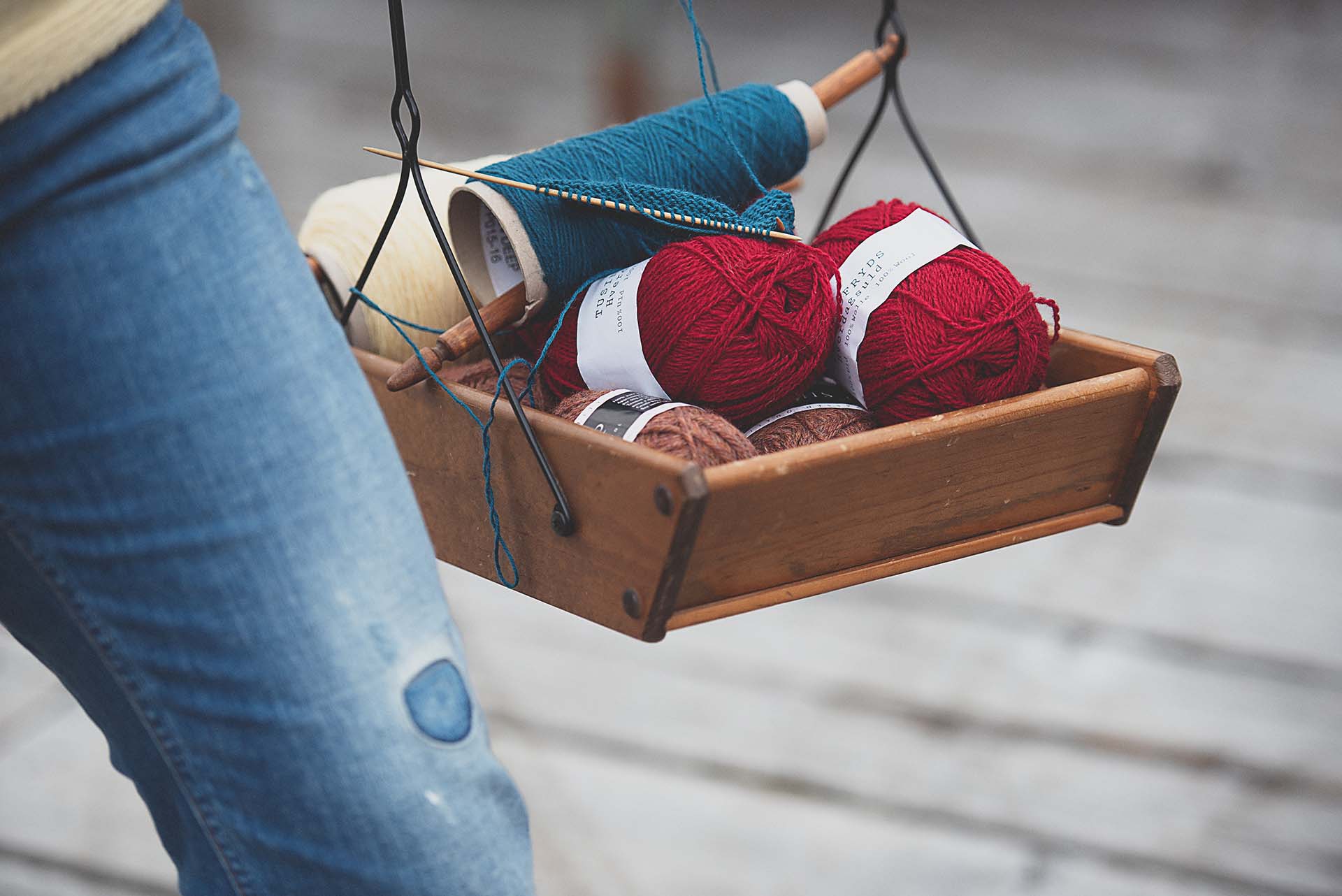
The Copper River method of salmon fishing is, at its core, a handcraft. Each fish is hand picked individually out of the net by a single fisherman, and each net is hung and mended by hand in the fall and winter after the salmon fishing season. Naturally, in a community employed by such an artisan endeavor, a devotion to functional crafting becomes a theme in one’s life. The romantic life of a fishing family, rural coastal living, and Alaska’s wildly beautiful landscape inspire creativity. Indeed, art and function live side by side here, and many wives of fishermen take a break from the hyperfunctional craft of net mending to enjoy more personal artistic pursuits. The Net Loft is a world-class fiber arts store in Cordova that helps the community stay occupied all year long. In 2015 the owner of The Net Loft, Dotty Widmann, envisioned the Cordova Guernsey Project in the hopes of promoting hand knit wool fishing gear and to reintroduce this labor of love into the active commercial fishing industry as a functional and meaningful garment. The project aims to be more than just a seasonal craft, but rather a vehicle through which similar cultures, histories and values can be shared and honored no matter the geographical location.
Many project participants have felt a connection to their roots through working with the natural fibers and traditional design. Amber Wasson, one of the local knitters in the project, is a young mother of two and wife of a fisherman. Though born and raised in Cordova, Amber feels a particular connection to the project’s European roots that mirror her own. Like many young fishing families, she sees the completion of the sweater as part of a larger movement towards exploring the past in order to fully embrace the present. “The Cordova Guernsey Project interests me because it breathes new life into history.” She says, “The stories and traditions captivate me… It’s part of our heritage.” Amber’s sweater, made of a pale-yellow wool yarn, was completed during the long winter months and lonely summer days during the fishing season. “It does take a special kind of patience to complete a project like this.” Amber admits of her completed sweater. And patience is one thing that is in no short supply among the wives and families of fishermen, especially in Cordova, where the salmon season alone stretches for five long months.
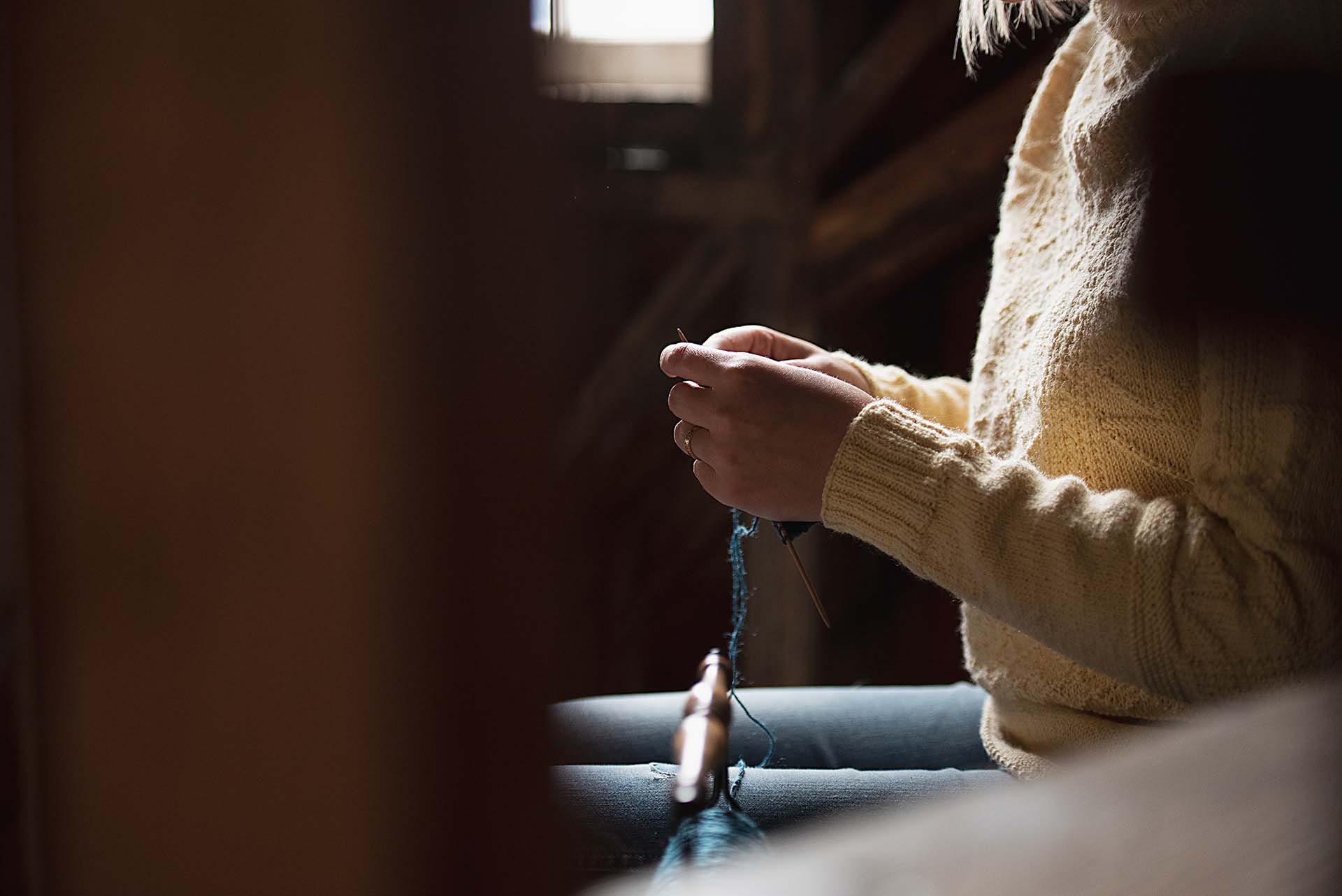
The Net Loft’s original intent of the project included a focus on the younger generation, with the hope of inspiring young knitters and fishermen to continue to see hand-made garments as functional for their fishing lifestyle and as a way to celebrate their culture and heritage. For Amber, this is certainly true, as she continues to wear the sweater for the outdoor work Alaska demands and looks forward to completing one for her husband while he’s out fishing. For her, the Guernsey sweater was a harkening to the past and a wealth of newness all at once, “I had never been exposed to the techniques like shoulder straps, underarm gussets, welts and channel island cast on while constructing a sweater. I enjoyed discovering solid color knitting, along-side the stories of it all. I would like to carry on this tradition.”
This is the beauty of tradition: that handcrafted goods continue to echo values we share through both time and geography. The British Isles and Coastal Alaska may be thousands of miles apart, but the things they share – knitters and fishermen, sweaters and sea wind – are a shining example of how patience and love are universal languages.
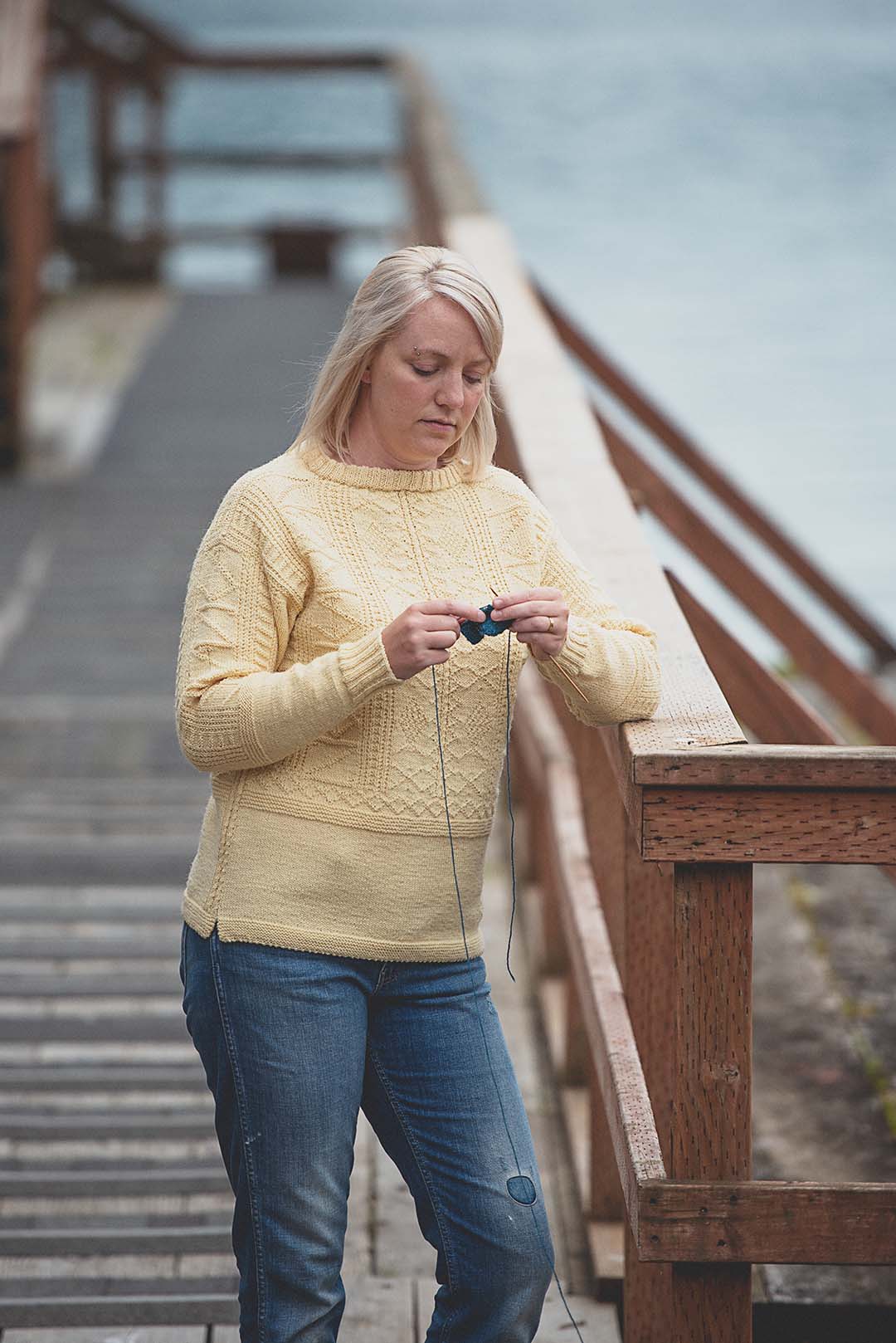
‹ Back


